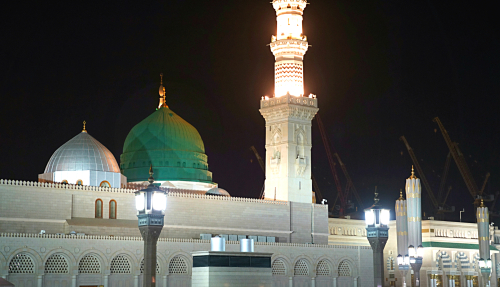Respect for Prophet and Listening to Music and How to Say Mashallah and Inshallah
Hanafi Fiqh
Answered by Shaykh Yusuf Weltch
Question
Is it considered disrespectful to the Prophet (may Allah bless him and give him peace) to listen to music despite the unwanted thoughts i get?
Is saying “InshAllah” and “MashAllah” as one word and not separated allowed?
Answer
In the Name of Allah, the Most Merciful and Compassionate
Music is an issue of great debate amongst the scholars. There are some aspects of music that are unanimously considered strictly prohibited (haram) and there are other aspects that are unanimously permitted. Between these to, majority of issues around music fall into a gray area.
You can see more details on the issue of music here.
Disrespecting the Prophet (may Allah bless him and give him peace)
If by disrespecting the Prophet (may Allah bless him and give him peace) you mean going against that which he commanded or disobeying him – then any sin would fall into this category.
The Prophet (may Allah bless him and give him peace) out of his sheer mercy and concern for his community – even after his passing from this world – seeks forgiveness for us when our sins are presented to him.
Saying or writing InshaAllah or MashaAllah as one word
The statement “if Allah wills” (In sha Allah) and the statement “as Allah wills” (Ma sha Allah) are each three words in the Arabic. For one to pronounce them properly one would pronounce all three words separately according to the rules of Arabic pronunciation.
To say them as all together as one word or to write them such is a mistake in Arabic. However, this does not necessitate that the person is sinful; many people do to a lack of knowledge and proficiency in Arabic, make this mistake.
Hope this helps
Allah knows best
[Shaykh]Yusuf Weltch
Checked and approved by Shaykh Faraz Rabbani
Shaykh Yusuf Weltch is a teacher of Arabic, Islamic law, and spirituality. After accepting Islam in 2008, he then completed four years at the Darul Uloom seminary in New York where he studied Arabic and the traditional sciences. He then traveled to Tarim, Yemen, where he stayed for three years studying in Dar Al-Mustafa under some of the greatest scholars of our time, including Habib Umar Bin Hafiz, Habib Kadhim al-Saqqaf, and Shaykh Umar al-Khatib. In Tarim, Shaykh Yusuf completed the memorization of the Qur’an and studied beliefs, legal methodology, hadith methodology, Qur’anic exegesis, Islamic history, and a number of texts on spirituality. He joined the SeekersGuidance faculty in the summer of 2019.
